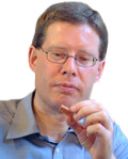
Intelligence
Is High Intelligence Necessary to be a Genius?
Edison and Einstein differed on intelligence testing
Posted January 2, 2011
A current American Nobel prizewinner in physics, now in his late eighties, reading my book Sudden Genius?, remarked to me: ‘You're right about IQ's--in college a psychology student gave a number of us the IQ test, and I was privately disappointed to make only the 130's. You may be amused by my private test. All Harvard courses had proctored three-hour final exams, and it was fashionable to sweat them, do all-nighters and that kind of thing; and one was supposed to squeeze out every last moment of the three hours. I made it a matter of pride to walk out at least an hour early, and I was usually the first. Not that my grades were so great!'
It would be intriguing to know the IQs of a large sample of past and present geniuses when they were still unknown, in their teens. Would the IQ of the brilliant student Marie Curie be far higher than the IQ of the dull student Charles Darwin? Would the speculative Einstein have an IQ ahead of Curie's? Would the polymathic Leonardo da Vinci have a low or a high IQ? What about the prodigious but narrowly focused Mozart?
Unfortunately, there is not much quantitative information available on the intelligence of exceptionally creative people, for fairly obvious reasons. In the first place, intelligence testing began only in the first decade of the 20th century, with the psychologist Alfred Binet testing for mental retardation in French primary schools. It did not become widespread until the 1920s, in North America. So there are effectively no numerical data for anyone born before the 20th century.
Secondly, its use in all cultures has been controversial, and far from universal, even in the country where it is most common, the United States. Moreover, the results of different intelligence tests taken during different periods, especially if they were devised in different cultures, are tricky to compare with each other.
Thirdly, tests are generally carried out in youth, but since that is before exceptional creativity reveals itself, educational psychologists will not always spot the potential of a future genius and administer a test.
Finally, one suspects that very few of those recognised as a genius would be willing to sit a standard intelligence test. Although widely used in education, business, government, and the armed services, intelligence tests do not have a high reputation, not least among many psychologists. No one puts their IQ in their curriculum vitae, nor does it appear in biographical reference books, even supposing a reliable figure is known.
Nevertheless, scattered information offers some suggestive hints. Consider the IQs of three past American Nobel laureates in physics. In 1965, the year he won his Nobel, Richard Feynman gave a talk at his former high school in New York and told the students that when he took an IQ test at school, around 1930, he scored 125. A ‘merely respectable' figure (notes his biographer), somewhat below the level of about 130 generally considered to indicate ‘giftedness'. William Shockley was tested twice at school in the 1920s and failed to reach the IQ of 135 required to join Lewis Terman's pioneering survey of gifted children, started in 1921 at Stanford University. Luis Alvarez, too, was rejected by Terman--which meant that Terman's programme lost a further opportunity to ‘discover' a future Nobel laureate. In fact, none of Terman's gifted children went on to win a Pulitzer prize or a Nobel prize.
The much older Einstein was of course never tested as a youngster. But when he visited the US in 1921, he was informally subjected to a question set by the inventor Thomas Edison (see picture), an advocate of intelligence testing for his prospective employees. Some journalists asked Einstein: ‘What is the speed of sound?' He confessed he did not know, and replied patiently that there was no need to carry this information in his head, as he could look it up in a book. Next day, the inevitable headline was: ‘EINSTEIN SEES BOSTON; FAILS EDISON TEST'.
The chief difficulty in correlating intelligence with exceptional creativity and genius is that while psychologists may be able to measure intelligence, ever since Francis Galton's day they have been unable to agree on even an approximate definition. ‘Innumerable tests are available for measuring intelligence, yet no one is quite certain of what intelligence is, or even of just what it is that the available tests are measuring', admitted Robert Sternberg, in 1987. According to James Flynn, writing in 2007, ‘We have to realise that intelligence can act like a highly correlated set of abilities on one level and like a set of functionally independent abilities on other levels.'
In the mid-1980s, Flynn discovered an astonishing and subversive fact about mean IQ figures. In the post-war decades, mean IQ trended steadily upwards, not just in one or two countries but in all developed countries where sufficient IQ data were available. Over the second half of the century, some two generations, mean IQ grew by almost 20 points in the United States and Europe. Other, less reliable, data suggested that the growth went back to 1900, and that the mean IQ in 1900, scored against current norms, would have been somewhere between 50 and 70.
If we take the ‘Flynn effect' into account, it appears that Feynman's school-tested IQ (circa 1930) might have been more like 150-55, rather than 125, were Feynman to have been tested today. So, maybe the current Nobel laureate I mentioned earlier--five years junior to Feynman--had a rather higher IQ than he was informed. The debate about the relationship between high intelligence and exceptional creativity continues to churn.



